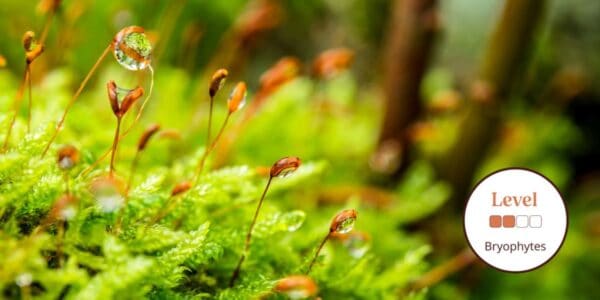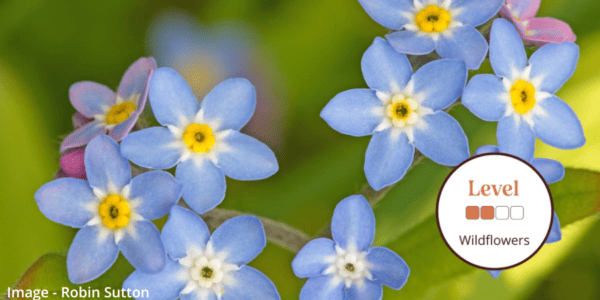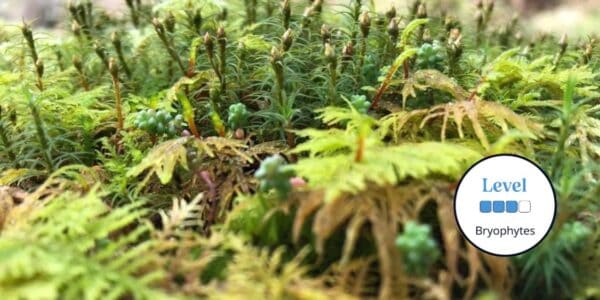This beginner online course will introduce you to the complex world of mosses, liverworts and hornworts, collectively known as bryophytes.
Have you ever wondered what makes up the bright green carpets on rocks and trees? If you take a closer look, a diverse and prehistoric world is revealed. With over half of all European Bryophyte species present in the UK there is so much to explore!
What is covered in this course?
- What are Bryophytes?
- Bryophyte Biology
- Bryophyte Ecology
- Finding Bryophytes in their Natural Environment
- Please note that this is not a species identification course
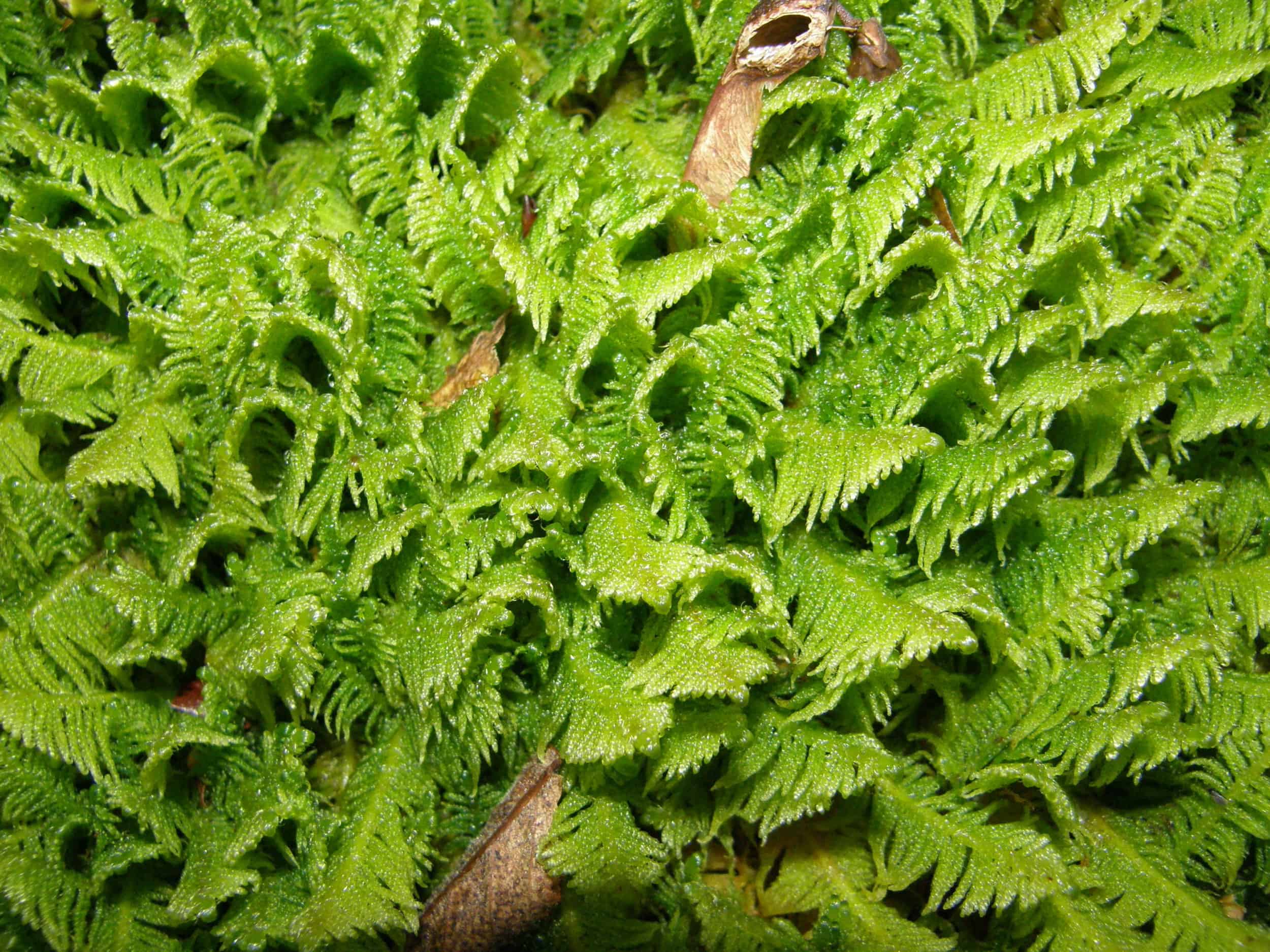
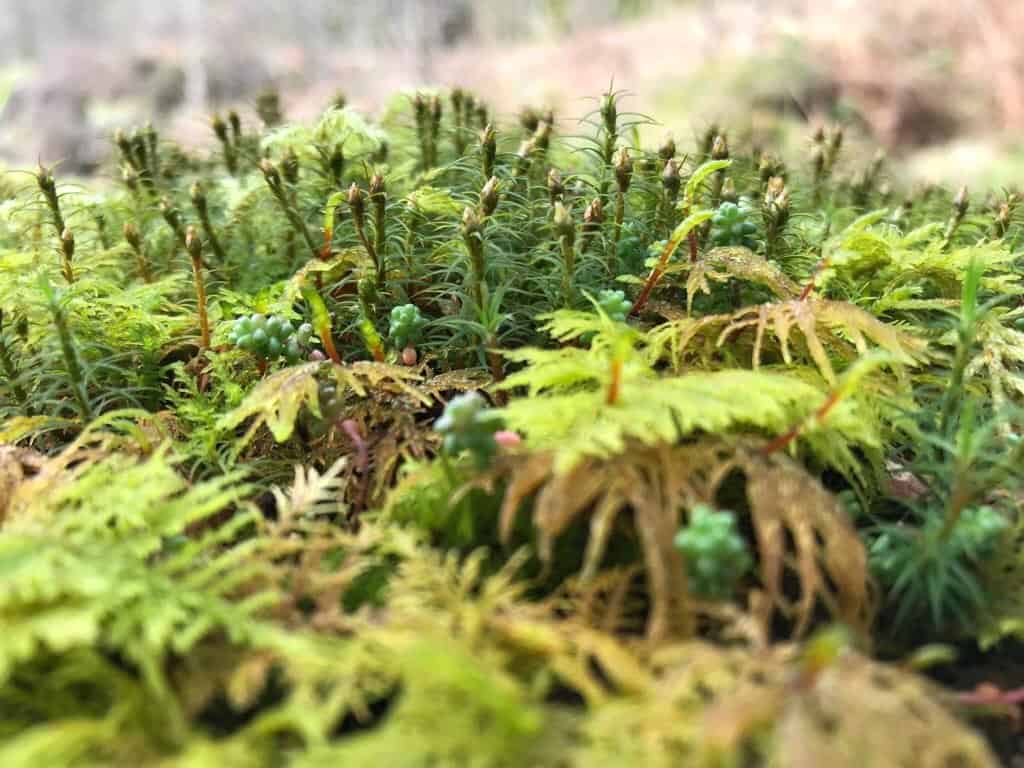
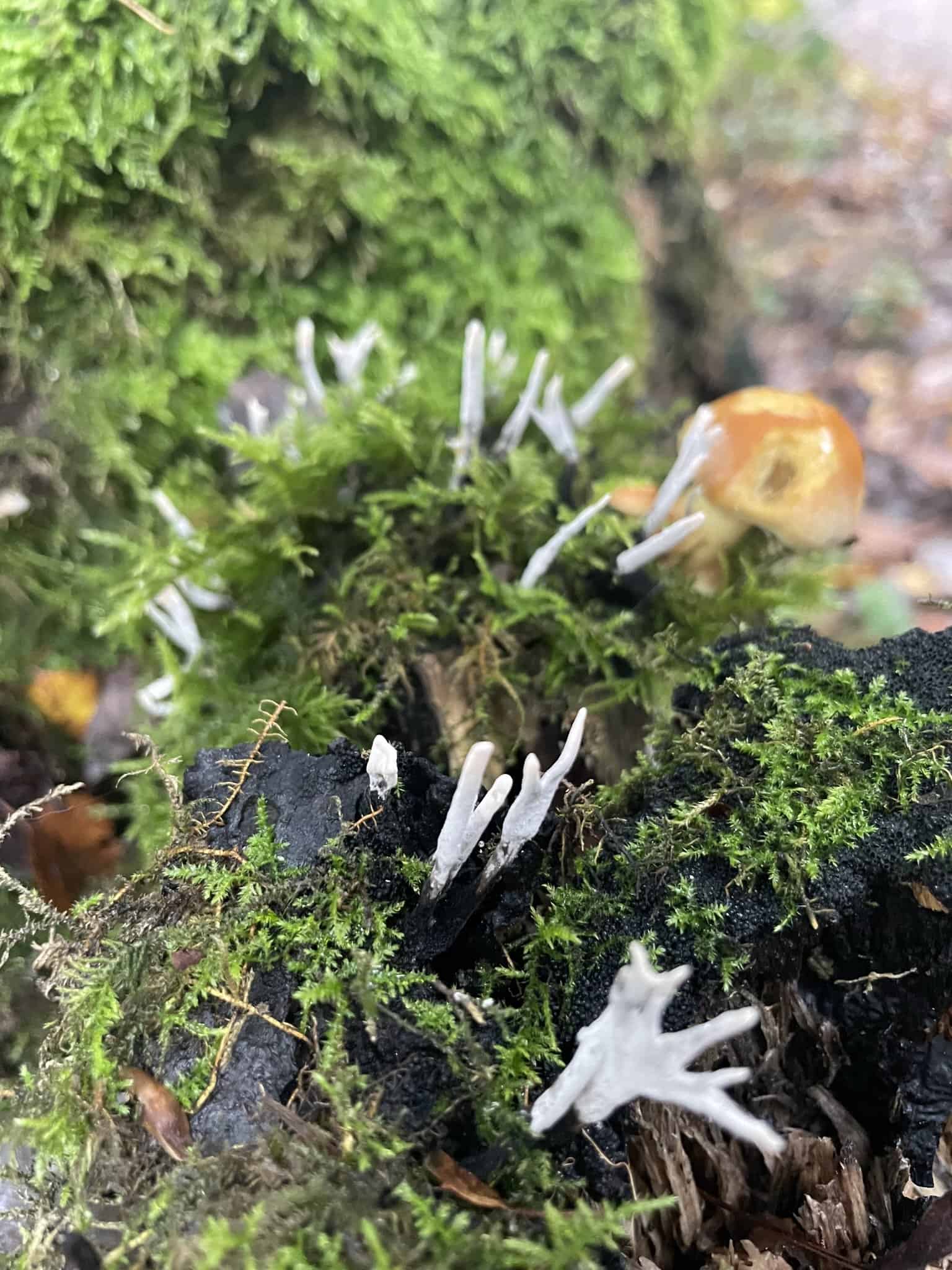
Read More
This course is a gentle introduction to bryophytes, which can be quite a complicated group to first begin with. The course covers their biology, ecology and where you can find them. There are plenty of opportunities for you to get outside and put your newfound knowledge into practice, alongside guidance from an expert tutor and other learners. The course is at a beginner level due to the nature of this group and is a great place to start for those with a botanical interest who are thinking about taking their first steps into the world of Bryophytes.
This is a 4-week online course covering 4 topics, for which you will complete a variety of self-led online resources and activities. Each topic is then concluded with either an interactive Zoom workshop or marked assignment to complement the online content. Time commitment is approximately 2-3 hours a week and an E-certificate is provided upon completion.
By the end of the course, you will be able to:
- Describe which groups of organisms are classified as bryophytes and what makes them different from all other plants
- Understand the basics of bryophyte lifecycles and reproductive strategies and structures
- Describe bryophyte habitats and their environmental conditions
- Recognise groups of common bryophytes in their natural environments
- Share this knowledge with friends, family and fellow volunteers.
Who Should Attend? – Nature enthusiasts, Students, Rangers, Early career ecologists.
Knowledge Level Beginner – Level descriptors can be found on the following webpage: Framework and Course Level Descriptors
Prior Knowledge – Existing knowledge and understanding of basic plant terminology would be beneficial for this course.
Understand how our online courses are delivered.
Live Webinar Information
There are 4 webinars for this course, taking place at the end of each week. Please see the listing for the day and time.
Please note – webinars will be recorded and uploaded to the virtual learning platform for learners unable to attend.
About the Tutor
Lucia Ruffino
Lucia is a bryologist and free-lance botanical surveyor living and working in North Wales. Lucia’s botanical knowledge has developed over the years from an amateur background and she now specialises in NVC surveys in upland and peatland habitats.
Diego Sánchez-Ganfornina
Diego Sánchez-Ganfornina is a botanist and educator with interests in bryology and plant ecology, living and working in Edinburgh. With a passion for nature since an early age, Diego’s knowledge and experience has developed in different countries and habitats. He has participated in a variety of research and education projects over the years, and is now informing conservation priorities in arid rangelands in Saudi Arabia; researching several Australasian moss taxa, and developing and delivering educational activities at the Royal Botanic Garden Edinburgh. All projects Diego participates in have a common theme: that of having an immediate impact on the climate crisis, be it through conservation, ecological restoration, education or the raising of public awareness.
Example Timetable
Timetable
Week 1: What are bryophytes?
Self-study material available from start of course
Week 1 live webinar
Week 2: Bryophyte biology
Self-study material available after week 1 webinar
Week 2 live webinar
Week 3: Bryophyte ecology
Self-study material available after week 2 webinar
Week 3 live webinar
Week 4: Finding bryophytes in their natural environment
Self-study material available after week 3 webinar
Week 4 marked assignment due
The final deadline to complete any outstanding activities and self-study components is 2 weeks after the marked assignment.
Time commitment: This course will require approximately 2-3 hours of your time each week. This includes covering course materials on our Moodle learning platform and the Zoom session.
What's Included
The course has been carefully created to help you continue to build and develop your knowledge as the course progresses. With content crafted to the online Moodle Platform and bespoke to the Field Studies Council.
The course includes:
- 45-minute interactive weekly Zoom workshops to connect with the tutor and other participants
- Expert tuition for which the Field Studies Council is renowned
- Activities to work on independently in advance of each Zoom workshop
- Tailored course completion certificate
Once registered, you will follow well-illustrated, user-friendly ’books’ to pick up knowledge. Quizzes and skill checks will give you instant feedback on your learning. Forums give students the chance to interact with each other as well as a place to share work.
Reviews
-
★★★★☆
The content was concise and easy to understand
-
★★★★★
I liked the need to go out and find bryophytes for ourselves, always good to link the theory with finding things in the real world. The learning material was of a good level of detail for me. I feel enthused to carry on learning and have ordered myself a field guide. If there are any further FSC courses I would like to attend!
-
★★★★☆
A good grounding of a difficult subject.
Not having to travel to learn, especially this time of year. -
★★★★☆
I went from knowing just about nothing to feeling I now know a little about a difficult subject. I now want to attend a bryophyte ID course
-
★★★★★
Well structured - so delivered a lot of information in a relatively short time. Lots of photos to illustrate the points made, which made it all the more understandable.
-
★★★★★
I loved the detailed descriptions of bryophyte biology, reproductive strategies and life histories, and their roles in ecosystems
-
★★★★★
A brilliant introduction to these wonderful plants! I really enjoyed it and and thoroughly appreciated the emphasis on ecology as well as other aspects of botany. The tutor explained everything really well and conveyed their love and enthusiasm for the subject. encouraged to get out and encounter the plants being studied every week
-
★★★☆☆
A complex topic was made very accessible.
Bursaries and Subsidies
Student Discount
This course is eligible for a student discount. If you are a current student, please use discount code BioStudent20 at checkout for 20% off all Biodiversity courses.
Natural History Bursaries
There are a number of natural history bursaries available to help with the cost of your course. To find out if you and your chosen course are eligible, read more here.
Before You Attend
Accessing Your Course
- Once you sign up you’ll receive an email at least 24 hours in advance of the course opening with details of how to access our easy-to-use platform, Moodle.
- Moodle can be accessed through a browser or an app.
- Webinars are via Zoom so you won’t need any new software to attend
Recommended Devices
It is recommended that you access your course through a PC or laptop. Please be aware that there will be reduced functionality if you decide to access the course through a tablet or smartphone. The Field Studies Council is unable to email content directly to you.
Recommended Equipment
The following is not mandatory but will help you within this course:
- Hand lens
Opportunities to attend this course
-
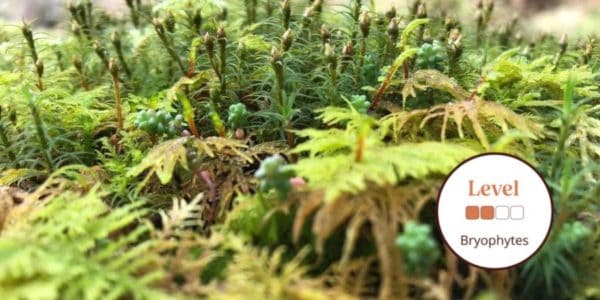
Wed 16, October 2024 - Wed 27, November 2024
The webinars will take place on Wednesdays 4:00 pm - 4:45 pm on the following dates:
- Week 1: 23rd October 2024
- Week 2: 30th October 2024
- Week 3: 6th November 2024
- Assignment Due: 13th November 2024
No current dates for this course? Click here to view all the upcoming Natural History courses.
Progress Your Learning
This is a training course from the Field Studies Council, delivered by expert tutors with an approachable learning style. After attending this course, you may like to progress your learning with further relevant courses or branch out into other areas of natural history. The Field Studies Council offers both online and in-person courses, so you can choose the learning style that suits you best.
The course gives you the opportunity to immerse yourself in a new subject and acquire novel skills. Our online portal gives you time to study at your own pace and fit the lessons around your own schedule.
If you have any questions about our online courses please check our Frequently Asked Questions or email [email protected].
Group Bookings Made Easy
If you have a group of 10 or more individuals wanting to complete one of our courses, our team are available to discuss your options – from discounts to private team courses. Find out more!
You can rest assured that the absolute best content from an expert in environmental education will be at your fingertips. In choosing a Field Studies Council course, you will be joining thousands of people who learn with us each year.

